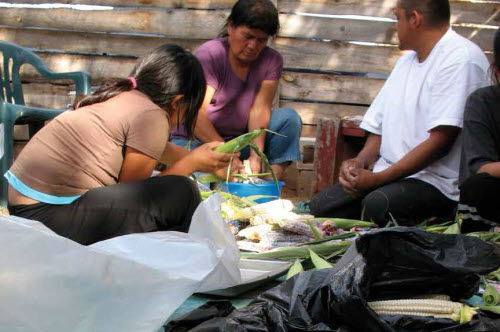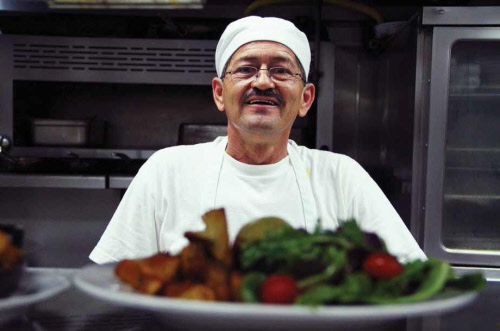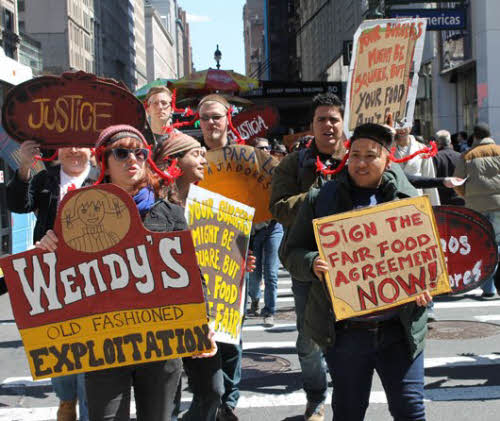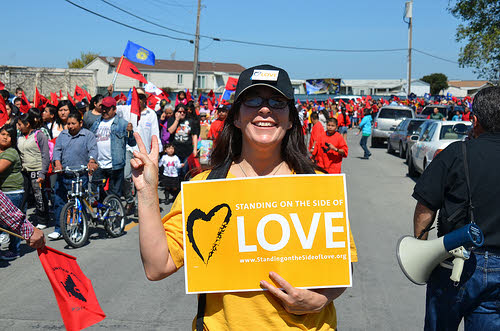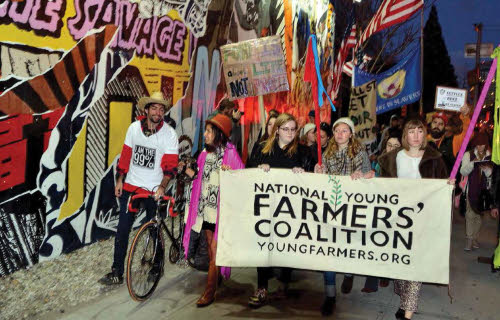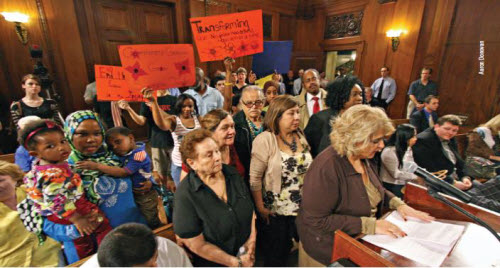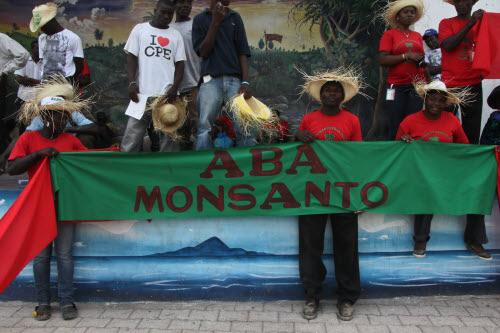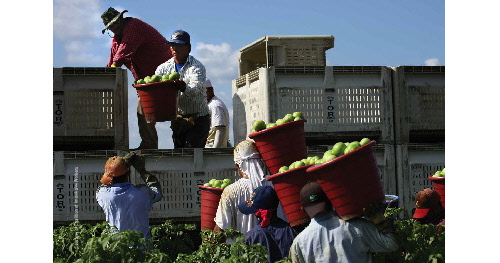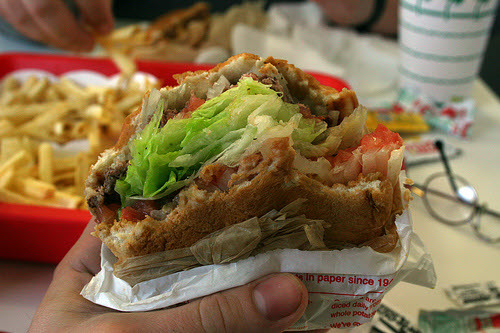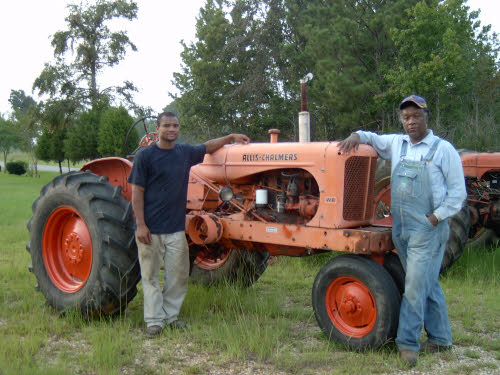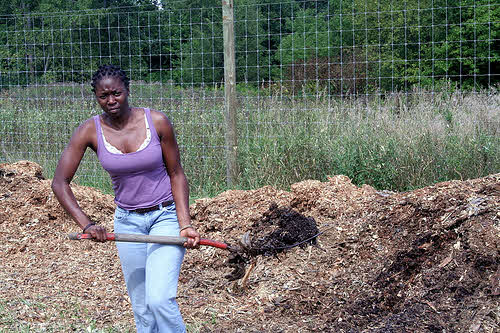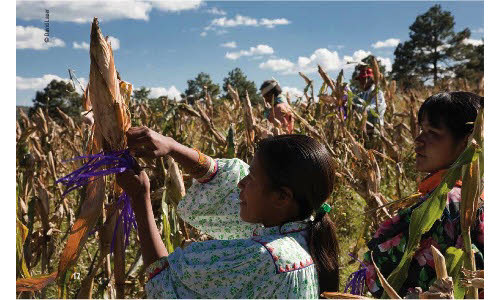Native peoples’ efforts to protect their crop varieties and agricultural heritage in the US go back 500 years to when the Spanish conquistadors arrived. Today, Native communities throughout the US are reclaiming and reviving land, water, seeds, and traditional food and farming practices, thereby putting the culture back in agriculture and agriculture back in local hands.
Tag: harvesting justice
Harvesting Justice 15: From Field to Table – Rights for Workers in the Food Supply Chain
The Food Chain Workers Alliance has a goal of nothing less than full rights and fair wages for the 20 million workers who grow, harvest, process, pack, ship, cook, serve, and sell food in the US.
Harvesting Justice 14: A Penny a Pound, Plus Power – the Coalition of Immokalee Workers Changes History
For most tomato pickers in the US, a bucket brings in 50 cents, a piece rate that has remained virtually unchanged for more than 30 years. Because the rate is set so low, a worker has to pick more than two and a quarter tons of tomatoes per day – the weight of a young elephant – to make the minimum wage. The Coalition of Immokalee Workers is transforming all of this.
Harvesting Justice 13: We Have a Dream – Farm Workers Organize for Justice
For decades, farmworkers – the more than one million men and women who work in fields and orchards around the country – have been leading a struggle for justice in our food system. They have been building awareness and mobilizing the public, successfully securing some rights, higher wages, and better working conditions.
Harvesting Justice 12: Weeding Corporate Power out of Agricultural Policies – Communities Mobilize for Food and Farm Justice
From the school cafeteria to rural tomato farms, and all the way to pickets at the White House, people are challenging the ways in which government programs benefit big agribusiness to the detriment of small- and mid-sized farmers.
Harvesting Justice 11: Seeds of Change – Shifting National Agricultural Policies
The need for American citizens to become the policy-makers to create a just and sustainable food supply chain is urgent, because in the hands of the US government it has become increasingly unjust and unsustainable.
Harvesting Justice 10: Small Farms Fight Back – Food and Community Self-Governance
Heather Retberg stood on the steps of the Blue Hill, Maine town hall surrounded by 200 people. “We are farmers,” she told the crowd, “who are supported by our friends and our neighbors who know us and trust us, and want to ensure that they maintain access to their chosen food supply.”
Harvesting Justice 9: Farmers and Consumers vs. Monsanto – David Meets Goliath
Via Campesina, the world’s largest confederation of farmers with member organizations in 70 countries, has called Monsanto one of the “principal enemies of peasant sustainable agriculture and food sovereignty for all peoples.” See how peasant farmers, and the activists who support them, are challenging the agribusiness giant’s incursions into developing world farming.
Harvesting Justice #8: From Growing Profit to Growing Food – Challenging Corporate Rule
The global movement for food justice and food sovereignty seeks to bust the corporate takeover of our food system, which has been accomplished with the complicity of our governments. Here are some of the ways it’s working towards this goal.
Harvesting Justice #7: The True Cost of Industrialized Food
Think that burger’s cheap? Tory Field and Beverly Bell of Other Worlds dig into the costs, both human and environmental, of the industrialized food system.
Harvesting Justice #6: The Consumer's Got to Change the System – Farmer Ben Burkett on Racisim & Corporate Control of Agriculture
Other Worlds’ Tory Field and Beverly Bell discuss issues of sustainability and agriculture with Mississippi farmer and member of Via Campesina’s food sovereignty commission Ben Burkett.
Harvesting Justice #5: Uprooting Racism in the Food System – African Americans Organize
A shovel overturned can flip so much more than soil, worms, and weeds. Structural racism – the ways in which social systems and institutions promote and perpetuate the oppression of people of color – manifests at all points in the food system. It emerges as barriers to land ownership and credit access for farmers of color, as wage discrimination and poor working conditions for food and farmworkers of color, and as lack of healthy food in neighborhoods of color. It shows up as discrimination in housing, employment, redlining, and other elements which impact food access and food justice.
Harvesting Justice #4: Women’s Work – Gender and the Global Food System
Women produce 60 to 80 percent of all food, both as subsistence farmers and as agricultural wage laborers. They are the primary providers for the majority of the world’s 925 million hungry people, obtaining food, collecting firewood and water, and cooking. And yet they have less access to land and the resources necessary to grow on it than their male counterparts. Inequitable distribution of land, labor, and resources leaves farming women triply burdened by work: in the fields, in the home, and in society.

